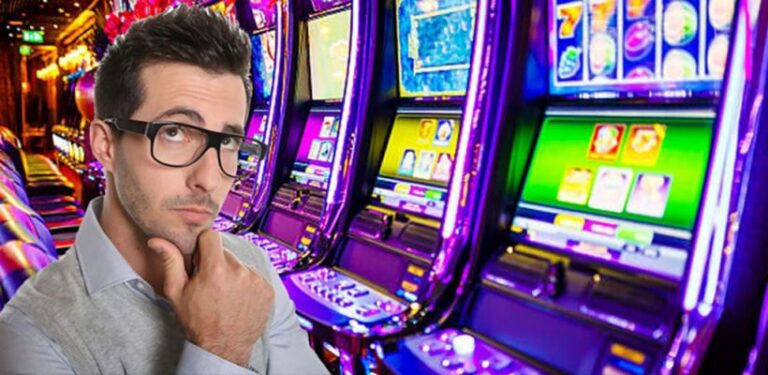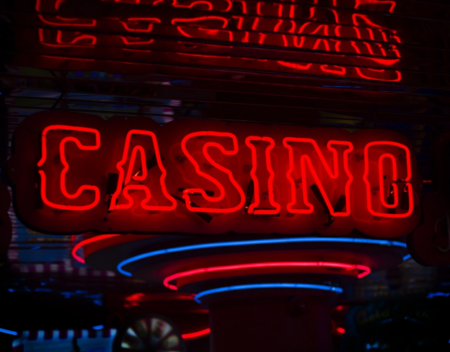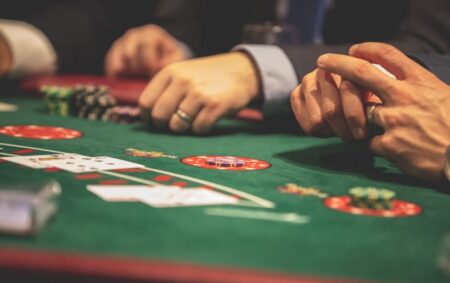If you’ve ever been to a casino, it’s likely that you’ve observed a handful of patrons sitting in front of slot machines for hours on end. They look more like zombies than human beings because their glazed eyes stare at the screen hoping to strike just the right combination.
The only accurate way to describe the scene above is by saying this hypothetical player has a full-blown addiction. But when you consider all the ways the deck was stacked against them, it’s hardly surprising.
In this article, I’ll go over four ways slot machines are designed to keep you hooked.
1 – There’s (Almost) No Learning Curve
The appeal of slot machines is that there’s barely a learning curve involved for new players. Grab the lever or press the buttons and the wheels go spinning, then stop them by pressing another set of buttons and see if you’ve won.
Note:
For casino designers, real money slot machines represent a game that is highly-profitable for the house, so it makes sense that they would want as many gamblers playing as possible. In fact, some casinos have dedicated themselves primarily to slot machines (or variations of them) in order to capitalize on all they have to offer the house.
Even some of the easiest games out there such as blackjack or roulette take a few rounds of playing before first-timers really feel comfortable. Additionally, the fact that players are interacting with a machine and not a real person means there’s no awkward interaction when it’s clear that the player doesn’t really know what they’re doing.

The most significant factor that leads to players getting addicted to slot machines isn’t some psychological hack or trick being played by games designers, it’s really just the ease of play. Don’t get me wrong, there are plenty of sneaky ways slots are designed to keep you sitting there long after you should have left. But if the game wasn’t so easy in the first place, there wouldn’t be as much at stake.
If you’ve never tested your luck at a slot machine in the past, ask yourself: Doesn’t this seem a little too easy?
2 – The Near Miss
If the ease of play is the casino’s way of saying, “Hey beginner, come play this game,” the near miss is what keeps those beginners spinning and spinning, hoping to hit it big. First, I’ll explain exactly what I mean when I discuss the near miss phenomenon.
Our brains are hardwired to want to accomplish something we’ve set out to do. This is a function of evolution, and it’s something that has obviously contributed to the survival of the human species. Unfortunately, when this center of the brain is hacked with slot machine design, it can have negative consequences.

Consider it This Way:
If you’re an ancient human hunting an animal and you get close to it, throw your spear, and miss slightly, that indicates you actually are close to accomplishing your objective. That is to say, it is a true “near miss.” Your brain recognizes that you’re “this close” to bringing home the food to the tribe and convinces you to keep going until you eventually accomplish your goal. This is the positive side of the “near miss” and explains why the feeling exists today.
In today’s world, where we no longer have to hunt for our food to bring home to the tribe, the near miss is manipulated by casinos to keep players coming back for more. The difference? A near miss on a slot machine doesn’t mean anything at all, but the human brain has a hard time recognizing this fact.
When you spin the wheel on the slot machine and you end up one symbol short of the jackpot, you win as much money as if you had no matching symbols at all. The “near miss” makes you feel like you’re almost there, but in reality it doesn’t mean anything in terms of how close you are to hitting the jackpot.
Casinos know that the near miss keeps players coming back for more. For this reason, it’s often emphasized on computerized versions of slot machines with messages like, “So close!” or “Just one more!” This is just one example of the many ways gambling taps into part of our evolutionary psychology and uses it against us.
3 – Small Payouts
One of the more nefarious ways slot machine designers and engineers keep people hooked is by intentionally programming these machines to give you a small reward when you’re on a losing streak.
Here’s how it works (keep in mind, this practice was identified by gaming authorities and considered to be illegal, but it still persists in casinos all over the place): Machines have been programmed with a special code that gets triggered when a player has lost a certain number of spins in a row. When the threshold of losses is reached, the machine automatically gives the player a win, and a small amount of money.
Note:
The idea behind this is that a player on a losing streak is likely to get up and leave, which is the exact opposite of what the casino want. One small win can go a long way in keeping that “hope” alive in a gambler. Slot machine engineers know that this short dopamine spike that comes with a win is the key to building an addictive game.
Now, here’s the most devious part of this setup: These small wins aren’t really even wins. The game is programmed to deposit a small percentage of your losses into a “bank” which serves as the reserve for your losing streak payout. For example, if the game says you’re losing $0.50 every time you don’t win, it will deposit $0.02 cents of that loss and save it for later.
Not all slot machines are designed this way—as I mentioned, it’s not legal but it does still show up from time to time. This is probably the most egregious example of programmers hacking the minds of players to keep them spinning, and spinning, and spinning for hours on end.
4 – They Use Credits Instead of Cash
Most casinos nowadays utilize programmable gaming cards instead of cash. In the old days, you would have to put your dollar bills into the slot machine, you simply swipe your card today. Casinos might tell you that the purpose of the card is simply that it makes things easier (how else could they give you comps so fast?!). In reality, they’re just putting a barrier between you and your money which makes it much easier to spend.

Don’t get me wrong, there are practical applications for the casino membership card that is the standard nowadays. However, if the card led to less spending by players, you can bet that cash would still be used in the majority of gambling establishments.
Note:
When you sit down at a slot machine and swipe your card, it doesn’t feel like you’re using real money that you earned. It’s more like “fun credits” that are meant to be spent. If you don’t win anything, it hurts much less. When it hurts less, you keep on playing.
I’m not suggesting that it’s necessarily wrong for casinos to use cards instead of cash. Rather, I’m saying it’s necessary for players to understand that each time they reload that card, your bank account is taking a hit. All the more reason to create a functioning bankroll prior to your gambling trip.
Conclusion
I don’t want this article to be an all-out criticism of slot machines. Like every other vice, they have a time and a place where they’re plenty appropriate (and even a little bit fun, too).
The bottom line is that you simply need to be able to recognize when you’re falling into the trance-like state while playing slots and understand that they’re designed to make you feel that way. If you’re able to identify the addictive nature of slots, there’s a good chance you can avoid any negative consequences that will lead to you draining your bankroll quick.











